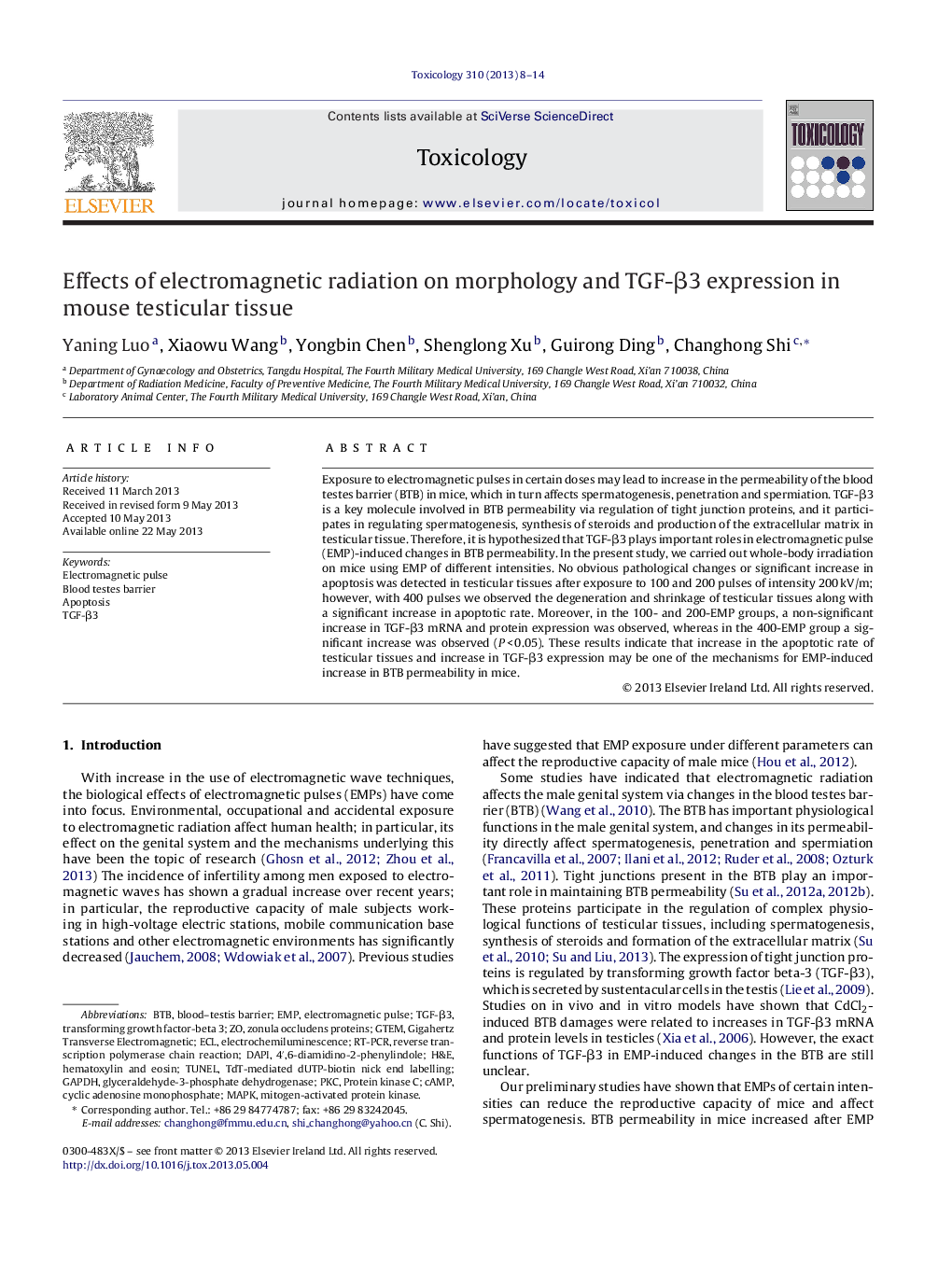| Article ID | Journal | Published Year | Pages | File Type |
|---|---|---|---|---|
| 2595625 | Toxicology | 2013 | 7 Pages |
•EMP exposure with 400 pulses causes testicular tissue degeneration and exfoliation.•EMP exposure with 400 pulses increase apoptotic rate of testicular tissue.•EMP exposure with 400 pulses increases the TGF-β3 expression in testicular tissue.•TGF-β3 has regulatory functions in the increase in BTB permeability induced by EMP.
Exposure to electromagnetic pulses in certain doses may lead to increase in the permeability of the blood testes barrier (BTB) in mice, which in turn affects spermatogenesis, penetration and spermiation. TGF-β3 is a key molecule involved in BTB permeability via regulation of tight junction proteins, and it participates in regulating spermatogenesis, synthesis of steroids and production of the extracellular matrix in testicular tissue. Therefore, it is hypothesized that TGF-β3 plays important roles in electromagnetic pulse (EMP)-induced changes in BTB permeability. In the present study, we carried out whole-body irradiation on mice using EMP of different intensities. No obvious pathological changes or significant increase in apoptosis was detected in testicular tissues after exposure to 100 and 200 pulses of intensity 200 kV/m; however, with 400 pulses we observed the degeneration and shrinkage of testicular tissues along with a significant increase in apoptotic rate. Moreover, in the 100- and 200-EMP groups, a non-significant increase in TGF-β3 mRNA and protein expression was observed, whereas in the 400-EMP group a significant increase was observed (P < 0.05). These results indicate that increase in the apoptotic rate of testicular tissues and increase in TGF-β3 expression may be one of the mechanisms for EMP-induced increase in BTB permeability in mice.
